12 Unspoken Dining Rules Every Server Wishes You’d Follow
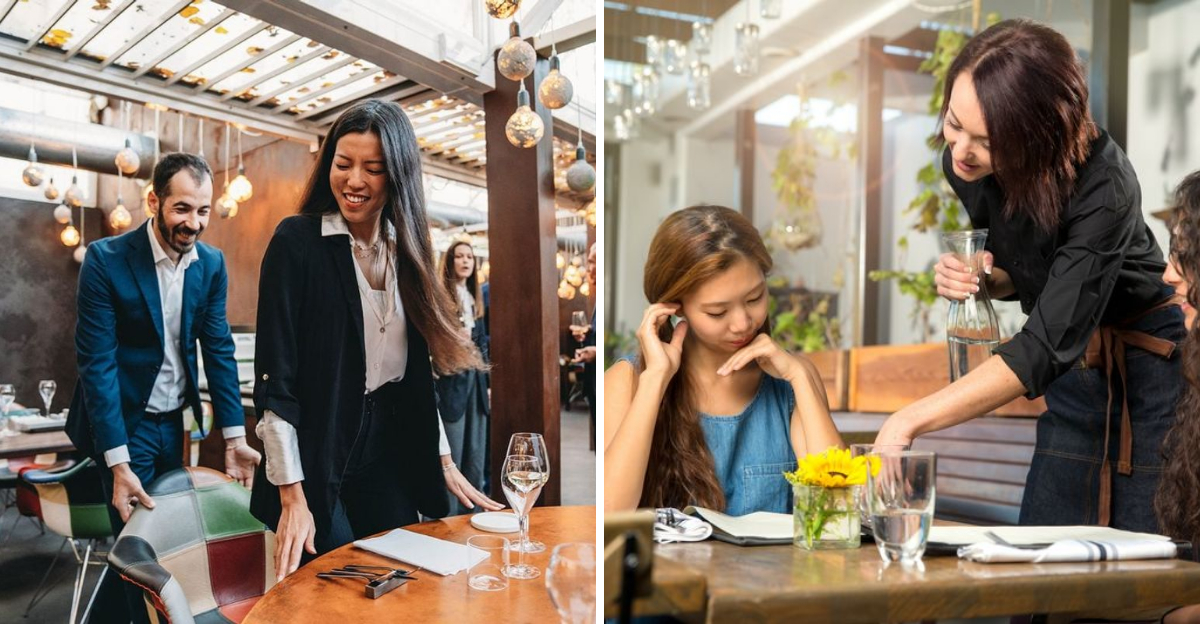
Dining out is more than just enjoying food; it’s about experiencing the ambiance, service, and the art of hospitality. Yet, slipping into poor dining habits can disrupt this experience not only for you but for those serving you. From seating protocols to the subtleties of tipping, each unspoken rule carries its weight in maintaining a harmonious dining environment. These are the nuances every server hopes you’ll understand, ultimately enhancing your dining pleasure and theirs. Embrace these guidelines for a smoother, more enjoyable dining experience for both you and your server.
1. Don’t Seat Yourself Unless Told To
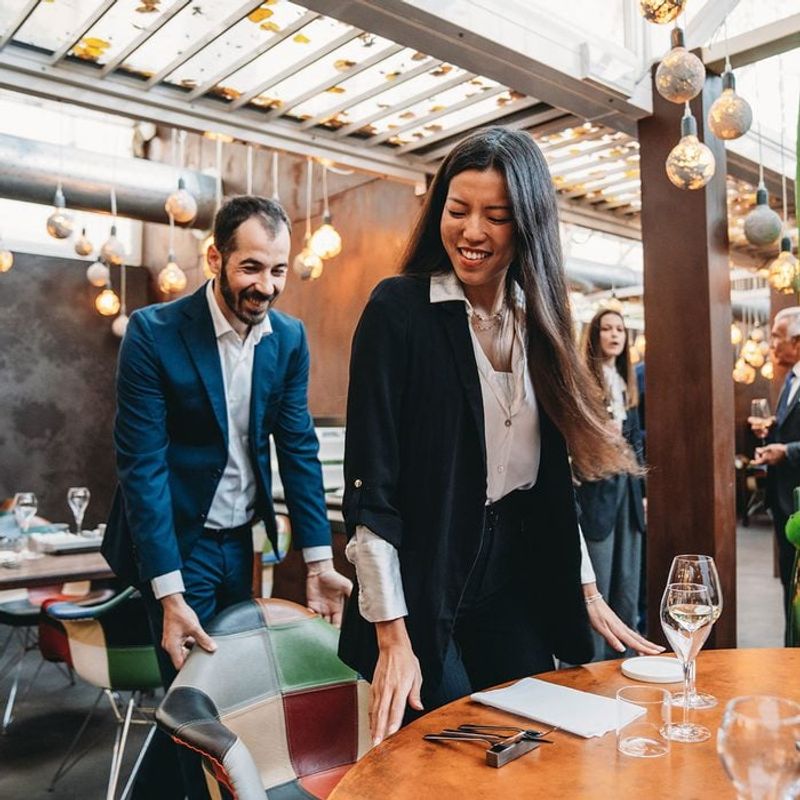
At your favorite eatery, you might become familiar with the layout. However, taking a seat uninvited can cause unnecessary confusion. Imagine a server juggling orders, only to find their section unexpectedly full. This spontaneous move can throw off the restaurant’s rhythm. Waiting for a host ensures you’re placed in a section ready to serve you.
This small courtesy goes a long way in helping the establishment run smoothly. Remember, seating is a strategic task, balancing server workloads and customer flows.
2. Know What You Want Before Waving Them Down
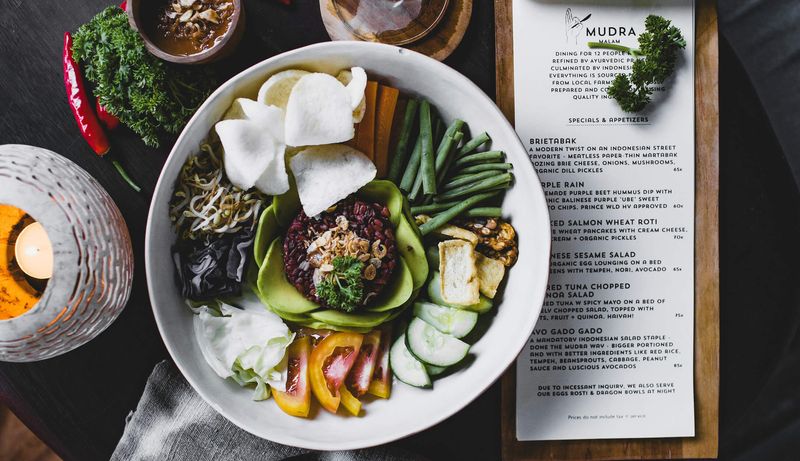
Servers juggle multiple tasks and tables, striving to maintain a seamless service flow. Interrupting them without being ready can disrupt this delicate balance. If you flag them down before deciding, it can lead to a misplaced sense of urgency.
To respect their time, glance over the menu and make a decision beforehand. This ensures your questions and orders fit into their planned schedule, keeping them on track. Patience and preparation enhance the service for everyone involved, making the dining experience more pleasant.
3. Eye Contact Beats Finger Snapping Every Time

Imagine if subtlety were an art form. Polite eye contact or a gentle wave is enough for a server to notice you without causing a scene. Finger snapping might seem effective, but it’s the quickest ticket to being remembered for the wrong reasons.
Servers appreciate gestures that respect their dignity. Being considerate not only ensures a pleasant interaction but also reflects well on your dining etiquette. So next time you need assistance, remember that a smile and a glance can convey volumes more than any sharp sound.
4. Don’t Say “We’re Ready to Order” and Then Ask 14 Questions
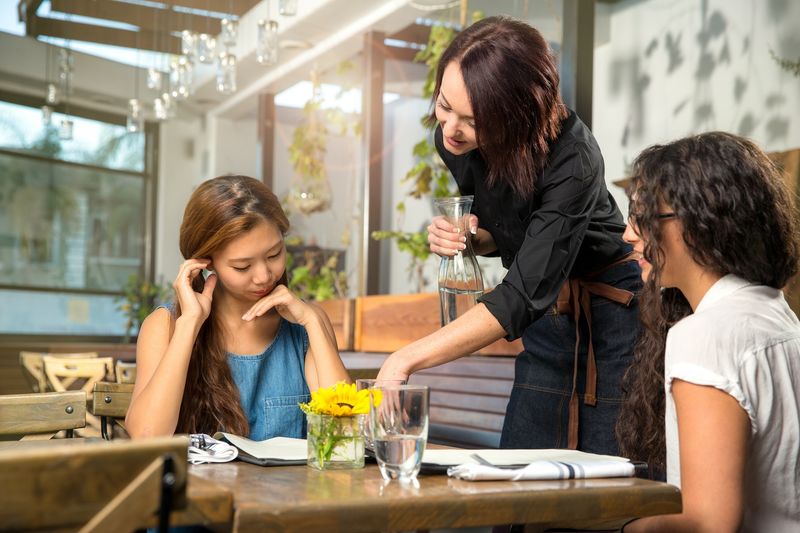
Eagerness can be misleading if not backed by readiness. When you claim to be ready but follow up with a barrage of questions, it can lead to confusion and delay. Servers rely on clear communication to manage their time efficiently.
Before signaling your readiness, take a moment to ensure everyone at the table is prepared. This coordination benefits both parties, streamlining the ordering process. It respects the server’s time and ensures a smooth dining experience for you and others.
5. Say Something If There’s a Problem—But Be Cool About It
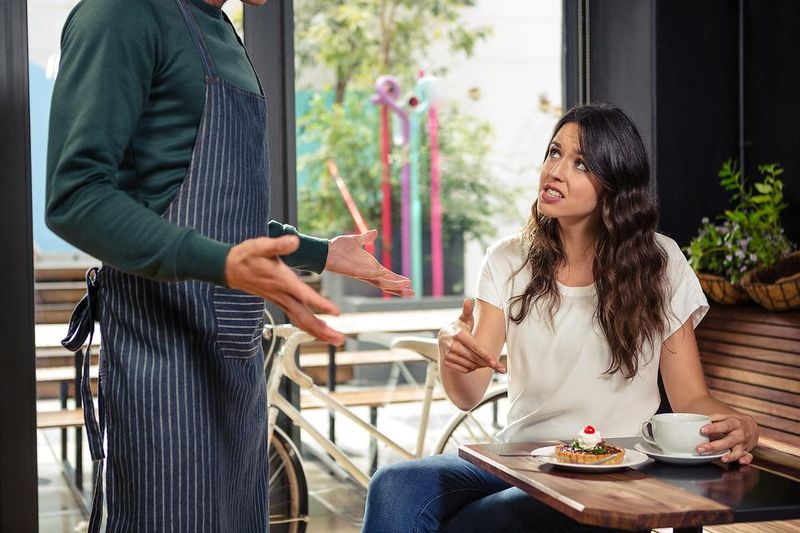
Mistakes happen, but how you respond can make all the difference. Instead of using sarcasm or frustration, approach the server with understanding. They’re there to help, and your calm demeanor can encourage swift resolutions.
An honest conversation is more productive than passive-aggressive remarks. By expressing your concerns respectfully, you allow the staff to correct the issue and improve your experience. This approach fosters a positive environment and shows appreciation for their efforts.
6. Don’t Make Them Split the Check 10 Ways at the End
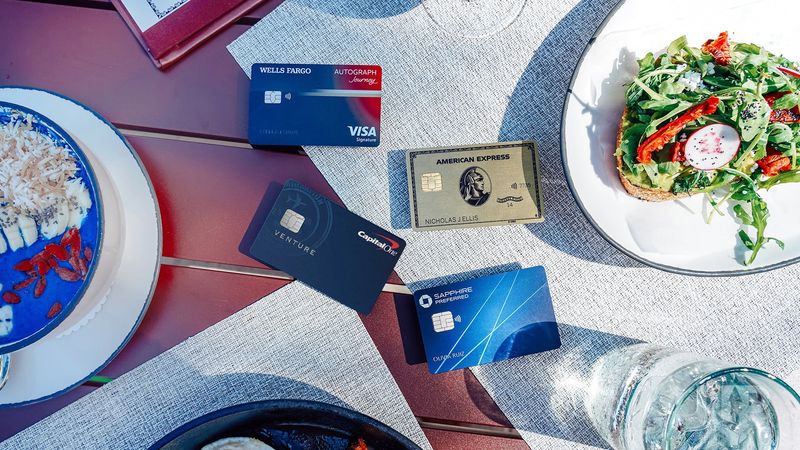
Splitting the check can be as complex as solving a puzzle. Informing your server early about splitting preferences helps in organizing bills efficiently. A late revelation can transform a simple task into a logistical challenge.
Advance notice allows servers to prepare, preventing confusion and delays at the end of your meal. It shows forethought and consideration, ensuring everyone leaves satisfied and promptly. Remember, a little planning ahead keeps the experience smooth for all involved.
7. Tip Based on Service, Not the Prices

Quality service deserves recognition, regardless of the bill’s size. Your server’s effort to enhance your dining experience is independent of your menu choices.
Even with modest orders, tipping generously acknowledges their hard work and attentiveness. This practice respects the time and energy they invest in your visit. Equitable tipping encourages excellent service, creating a positive feedback loop between diners and staff. Remember, a thoughtful tip is a testament to the value you place on their dedication.
8. If It’s Not on the Menu, Don’t Assume They Can Make It
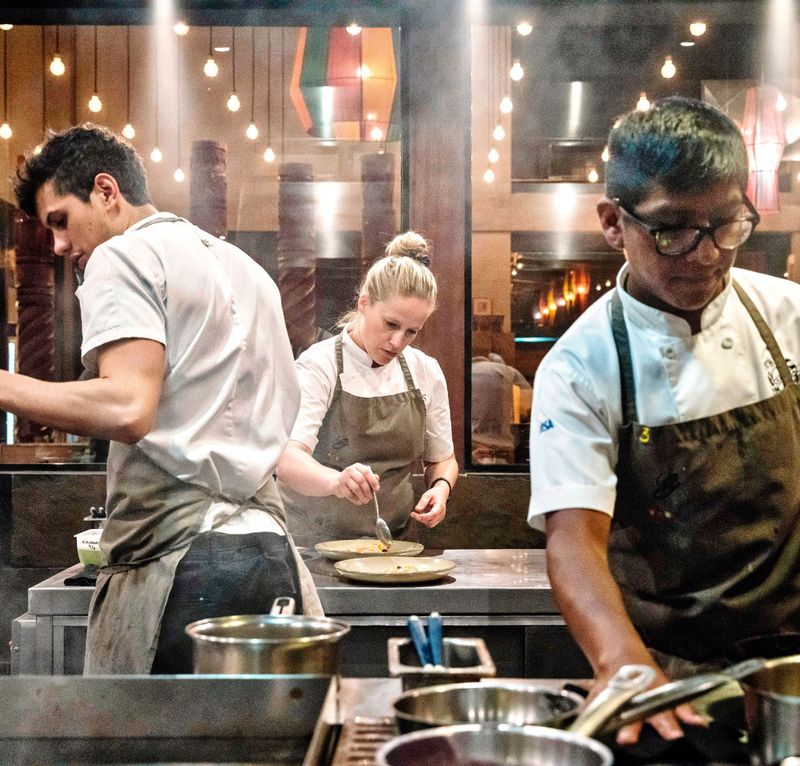
Menus are crafted with care, balancing available ingredients and kitchen capabilities. Assuming the kitchen can whip up something completely different can disrupt their flow. Special requests can be accommodated, but expecting bespoke dishes is often impractical.
Before asking for off-menu items, consider the impact on the kitchen staff. Respecting their expertise and limitations ensures smoother operations and a better dining experience for you and others. It highlights understanding and respect for their craft.
9. Bus Your Mess (Just a Little)

Lending a hand by organizing your tableware shows great courtesy. While not required, a small gesture like stacking plates or grouping trash can significantly ease your server’s workflow.
This consideration speeds up clearing and resets the table for the next guests more efficiently. It demonstrates respect for their efforts and a willingness to contribute to a pleasant dining environment. Small actions like these foster goodwill and appreciation from the staff.
10. Don’t Camp Forever After You’ve Paid
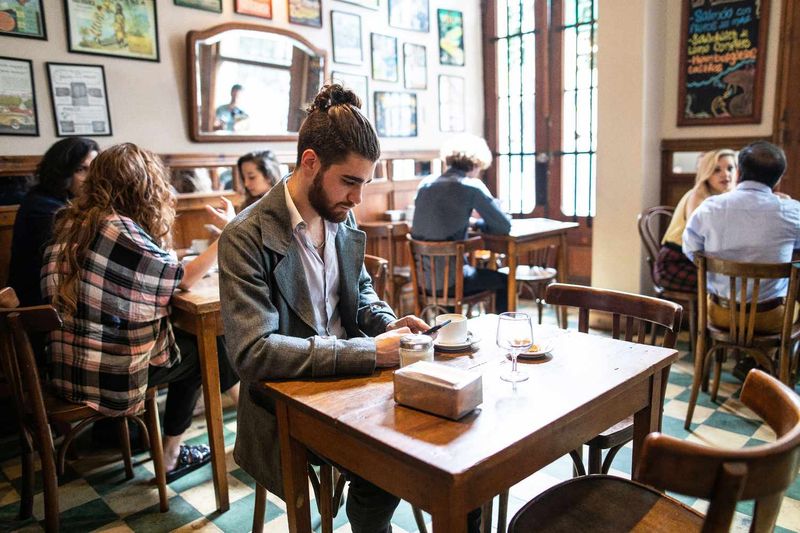
Dining spots thrive on turnover. After settling the bill, consider moving on to allow others to enjoy the space. Lingering long after paying prevents new guests from being seated, impacting the server’s potential tips.
Be mindful of the restaurant’s pacing and the demand for tables. Your timely departure respects the establishment’s operations and other diners awaiting their turn. It’s a small act that shows consideration for the service dynamics and fellow patrons.
11. Don’t Blame the Server for Kitchen Mistakes
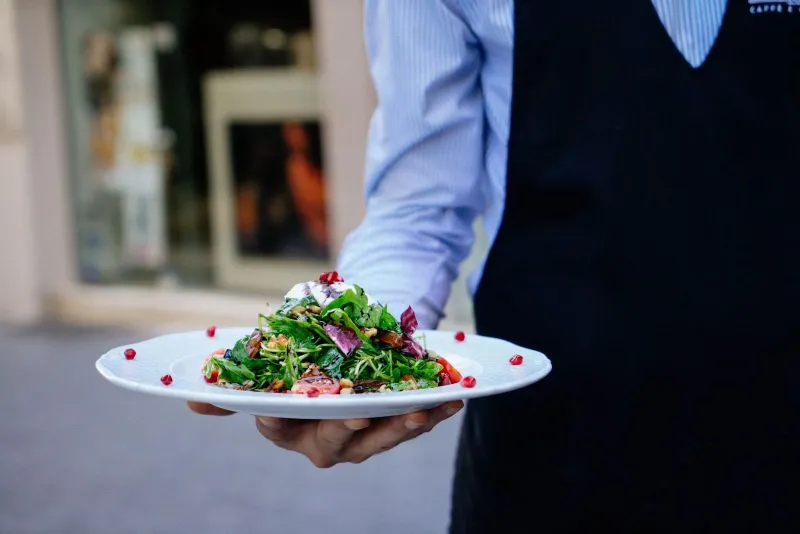
The server is your liaison with the kitchen, not the mastermind behind it. Issues like overcooked meals are often beyond their control. Patience and empathy towards servers in resolving such matters can lead to better solutions.
Directing frustration at the wrong person can sour the atmosphere. By acknowledging their limited role in cooking, you can foster a more cooperative interaction. This patience not only resolves issues faster but also contributes to a more harmonious dining experience for all involved.
12. A “Thank You” Goes a Long Way
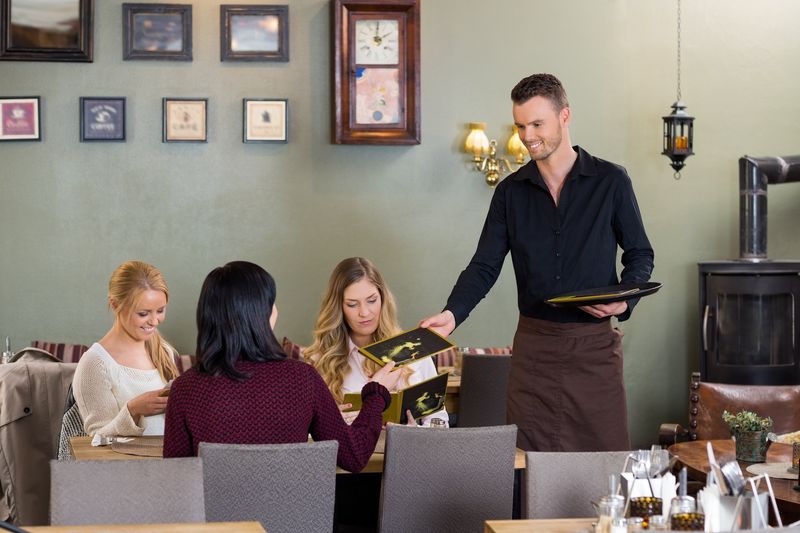
Simple gratitude can transform someone’s day. A heartfelt “thank you” acknowledges the server’s hard work and dedication, leaving a lasting impression. Servers often work long, challenging shifts, and appreciation acts as powerful motivation.
A small gesture like a smile or kind word creates a warm environment, enhancing your dining experience and theirs. This mutual respect enriches the atmosphere, turning an ordinary meal into a memorable encounter. Never underestimate the power of a sincere thank you in hospitality.
